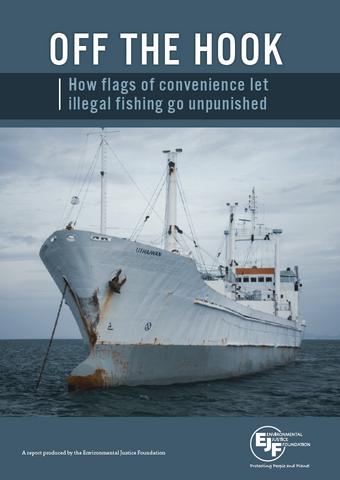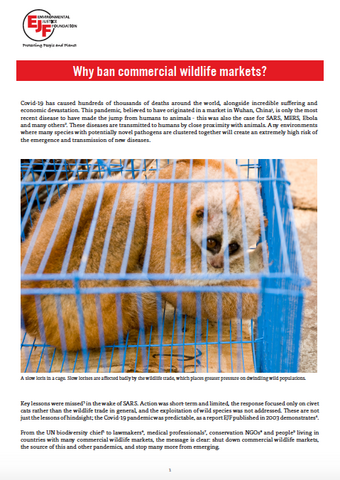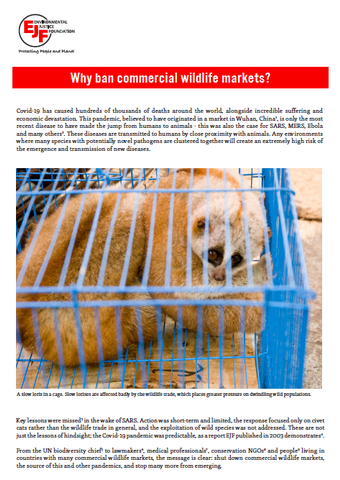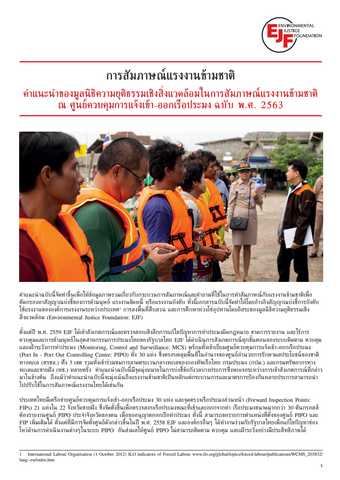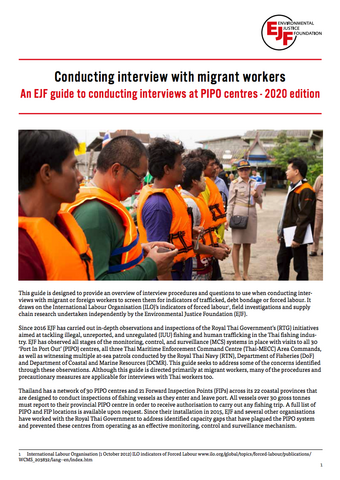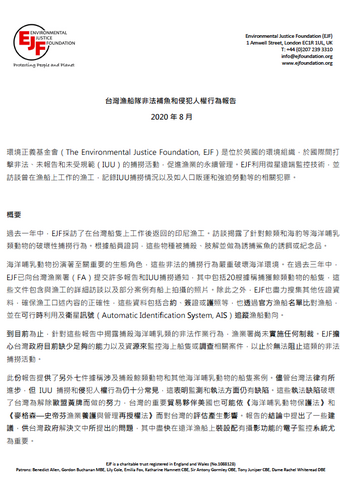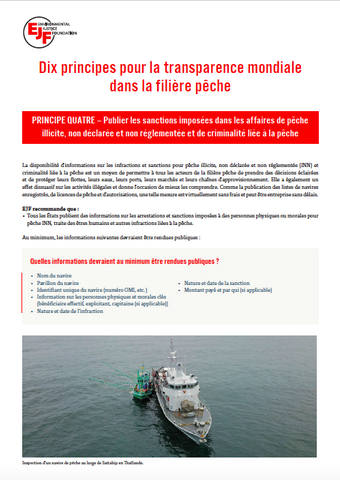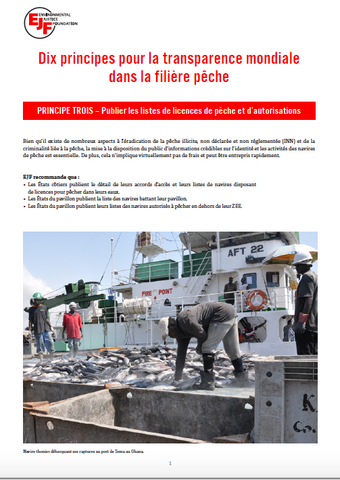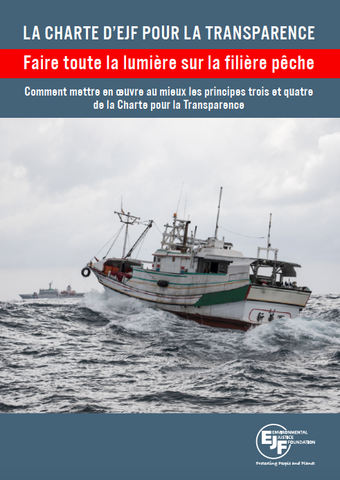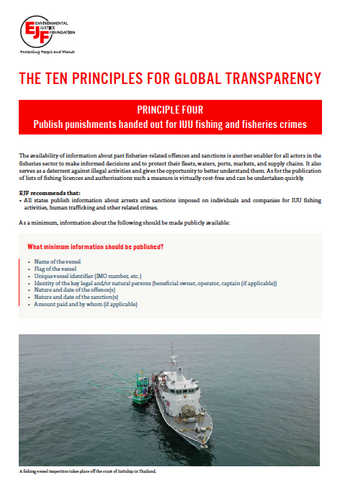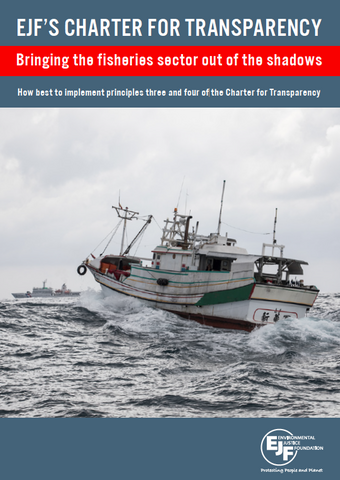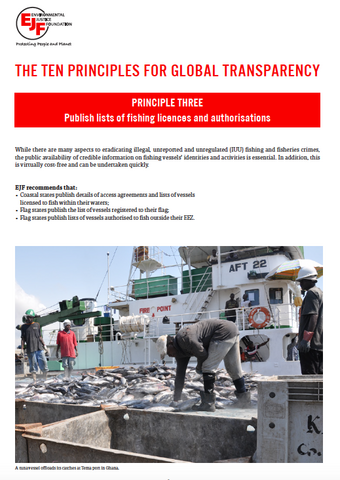Warum kommerzielle Märkte für Wildtiere verbieten?: Das Verbot kommerzieller Märkte für Wildtiere wird eine weitere tödliche Pandemie nicht unmöglich machen, doch es ist ein erster Schritt auf dem Weg, sie unwahrscheinlicher zu machen. EJF unterstützt die Empfehlung von medizinischen Fachleuten, Gesundheitsexpert*innen und Naturschützer*innen und fordert ein globales und dauerhaftes Verbot kommerzieller Märkte für Wildtiere.
การสััมภาษณ์์แรงงานข้้ามชาติิ: คู่มือรวบรวมคำแนะนำฉบับนี้จัดทำขึ้นเพื่อให้ข้อมูลภาพรวมเกี่ยวกับกระบวนการสัมภาษณ์ที่ควรทำและคำถามที่ควรใช้สัมภาษณ์แรงงานข้ามชาติเพื่อคัดกรองหาสัญญาณบ่งชี้กรณีการค้ามนุษย์หรือการบังคับใช้และละเมิดสิทธิแรงงานในอุตสาหกรรมประมง โดยอ้างอิงจากข้อมูลทีได้จากการสืบสวนและลงพื้นที่สังเกตการณ์ของ EJF ตั้งแต่ พ.ศ. 2556
Conducting interviews with migrant workers: This guide is designed to provide an overview of interview procedures for use by Thai port officials when conducting vessel inspections. It is designed to improve the chances that workers will feel comfortable enough to speak out about potential labour violations taking place onboard their vessel. Although this guide is written specifically for Thai labour inspections a lot of the screening tools included in this briefing are translatable to other worker engagements around the world.
Le quatrième principe pour la transparence : Fiche technique pour sa mise en œuvre: Cette note d’information technique s’intéresse à comment mettre en œuvre au mieux l’un des principes essentiels de la Charte d’EJF pour la Transparence: la publication des sanctions imposées dans les affaires de pêche illicite et de criminalité liée à la pêche.
Le troisième principe pour la transparence : Fiche technique pour sa mise en œuvre: Cette note d’information technique s’intéresse à comment mettre en œuvre au mieux l’un des principes essentiels de la Charte d’EJF pour la Transparence : la publication des listes de licences de pêche et d’autorisations.
Comment mettre en œuvre au mieux les principes trois et quatre de la Charte pour la Transparence: Ce rapport entend épauler les États dans l’application de deux principes essentiels de la Charte d’EJF pour la Transparence : la publication des listes de licences de pêche et d’autorisations et celle des sanctions imposées dans les affaires de pêche illicite et de criminalité liée à la pêche.
How best to implement principles three and four of the Charter for Transparency: This report helps states to implement two key principles of EJF’s Charter for Transparency: publishing lists of fishing licences and authorisations and publishing punishments handed out for illegal fishing and fisheries crimes.
